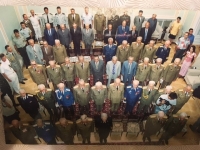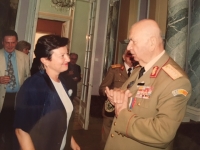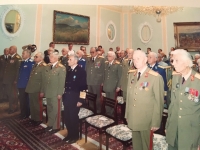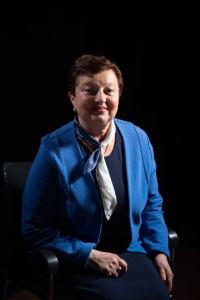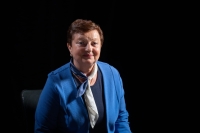I wish very much that there would be goodness, decency, calm and peace among people

Stáhnout obrázek
Eva Šothová was born on March 4, 1961 in Prešov in the family of Jozef Ivanisko (1935) and Irena Ivanisková, born Zajkotna (1940). Her grandfather on her mother‘s side was the mayor of the village of Valkovce in the district of Svidník, grandmother Mária was a housewife. Grandfather Michal from the father‘s side was a shoemaker in the village of Lascov in the district of Bardejov. Grandmother Mária took care of the household. Both families lived mainly from what they preserved and cultivated themselves and led an active social and religious life. The Second World War did not directly affect any of the families. During collectivization, they lost their land, forests and livestock, which they had to hand over to the cooperative. Grandma then worked at the Lascov Agricultural Cooperative until her retirement. After finishing school, both parents worked in the consumer cooperative Jednota, where they met, and got married in 1960. Eva started attending primary school in 1967, continued to grammar school and after graduation applied to the Faculty of Philosophy in Prešov. She graduated as a teacher in the field of history and Russian language and took up a teaching position in Bardejov. After two years, she went to Prague to join her husband Ján, who worked at the Federal Ministry of Foreign Affairs. In the years 1986-1989, she taught at two primary schools in Prague. In the summer of 1989, as the wife of the first secretary at the Czechoslovak Embassy, she went to the embassy in Bucharest, where in December 1989 she experienced the Romanian revolution. In the years 1991 – 1993, she was the director of the Elementary School at the Czechoslovak Embassy and taught Slovak and Czech children from the first to the fifth grade in a single class. She experienced the division of Czechoslovakia and the related division of the embassy while still in Romania. In the summer of 1993, he and his family returned to Slovakia. After spending two years in Bratislava, Eva‘s husband became the deputy ambassador in Paris in 1995 and the family went to France. In 2002, they returned to Romania again and stayed on this mission until 2007. Since returning to Slovakia, Eva has devoted herself to teaching.
